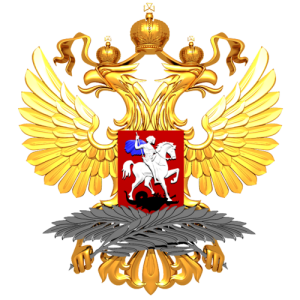13 July 201620:59
Comment by the Information and Press Department on the 32nd session of the UN Human Rights Council
1316-13-07-2016
The 32nd session of the UN Human Rights Council (HRC), during which it marked its 10th anniversary, ended in Geneva on July 8.
At the session the Russian delegation actively upheld the principle of equitable and mutually respectful cooperation on human rights, emphasised the absence of any alternative to compliance with universally accepted international norms and standards, and played a leading role in countering racism, aggressive nationalism and neo-Nazism, encouraging tolerance, protecting ethnic minorities, combatting human trafficking, and fostering respect for human rights via sport and the ideals of the Olympic movement.
At Russia’s initiative the HRC endorsed without voting a draft resolution on human rights impact of the arbitrary deprivation of citizenship. Unanimous support and a consolidated position of the world community on this issue is a powerful signal that the suppression of rights of “non-citizens” in Latvia and Estonia is unacceptable.
The adoption of the third HRC resolution on family protection at the initiative of a group of states, including Russia, was meaningful. This major resolution, with emphasis on the support of families with incapacitated members, became yet another confirmation of the inseparable link between human rights and traditional humanistic values. We will continue actively promoting this issue in the UN.
The Russian delegation emphasised that double standards in discussing Ukraine’s human rights record are unacceptable, and the need to thoroughly investigate the flagrant violations and crimes committed by Ukrainian law enforcement, including widespread use of torture, restrictions on the freedom of speech and assembly, persecution of the opposition and pressure on judges and attorneys.
We are disappointed that during the discussion of the Syrian issue, many states as well as UN agencies stuck to the same script in the service of narrow-minded political considerations. It is essential to acknowledge that international terrorism is the main threat to human rights in Syria. Terrorist groups are committing heinous crimes and flagrantly violating universal standards of human rights and humanitarian law. We are working for the HRC to offer an unequivocal denunciation of their activity and to conduct a thorough investigation.
Regrettably, the session took place amidst high tensions and reduced opportunities for dialogue and cooperation. This was triggered by the position of the United States and some other Western countries that are focused on defaming “dissenters” for political motives and that have demonstrated their total unwillingness to seek coordinated solutions to the majority of human rights problems.
We have to note that during the decade of its existence the HRC has largely lost its constructive potential and returned to the vicious practice of politicisation that led to the decline of its predecessor – the Human Rights Commission. Overt confrontation, regular use of the HRC as an instrument for achieving opportunistic goals, hypocrisy and double standards are discrediting the very idea of human rights and depriving it of its unifying potential. Therefore, it is no surprise that more and more governments subjected to biased accusations by the HRC are refusing to follow its procedures whose number, at the insistence of Western delegations, has long exceeded all reasonable limits.
We’d like to call on all states once again to strictly adhere to the principle of equitable, mutually respectful and constructive cooperation on the international human rights track, primarily in the HRC. Only in this way is it possible to restore its influence and authority in international affairs.
The HRC should focus its efforts on consolidating the capacity of states to protect human rights. It should pay more attention to the requests and needs of relevant countries, and make practical decisions to promote their human rights institutions, legislation and law-enforcement practice. Civil society and the media should be permanent participants in these efforts.
We are convinced that during its second decade the HRC should pursue cooperation with governments in promoting and protecting human rights with the participation of all interested parties.
